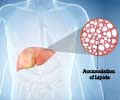Valentin Fuster is undertaking a three year study, known as TANSNIP-H2H, to investigate the relationship between levels of dementia and cardiovascular risk factors.

TOP INSIGHT
Valentin Fuster, Director of Mount Sinai Heart, Physician-in-Chief of The Mount Sinai Hospital, and also one of the world's leading cardiologists, is undertaking a three year study to investigate the relationship between levels of dementia and cardiovascular risk factors.
Dr. Fuster said, "We hypothesize that patients with dementia will show higher levels of atherosclerosis affecting the microvasculature of the brain and cardiovascular risk factors, such as high blood pressure, obesity, and other heart complications. To test this theory, we will recruit 200 eligible participants, ages 60-85, through the Center for Cognitive Health (CCH) and the Cardiac Imaging Program at The Mount Sinai Hospital and, using state-of-the art imaging tests, evaluate the degree of abnormal cerebral microvasculature, large vessel atherosclerosis and cardiovascular risk factors."
This is the second study in a series of four known as the TANSNIP (Trans-Atlantic Network to Study Stepwise Noninvasive imaging as a Tool for Cardiovascular Prognosis and Prevention) Program. The four TANSNIP studies are designed to understand atherosclerosis in different populations, at different levels of risk, and in different settings. The other TANSNIP studies include the TANSNIP-PESA workplace lifestyle intervention, which takes place in Spain with bank employees; TANSNIP-BioImage, which explores atherosclerosis progression in middle-aged people in Chicago and Florida; and TANSNIP-Genomics, which examines genomics, proteomics and metabolomics across the populations of the other three TANSNIP studies.
Source-Newswise
 MEDINDIA
MEDINDIA




 Email
Email










